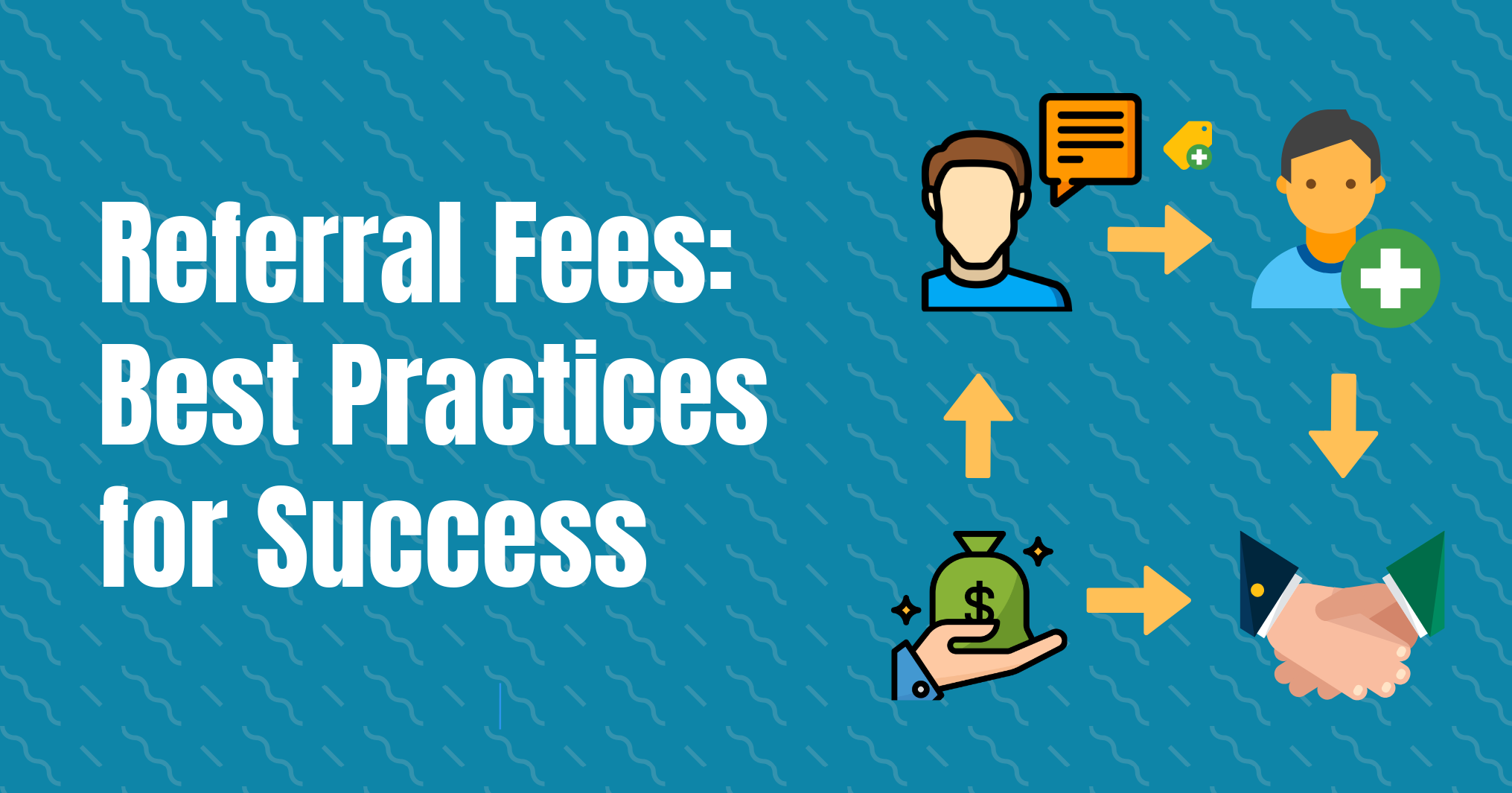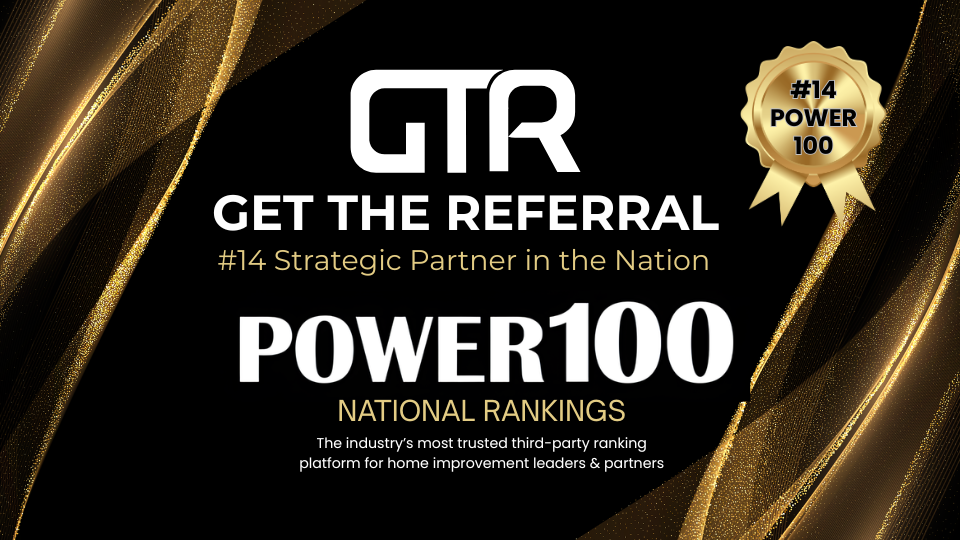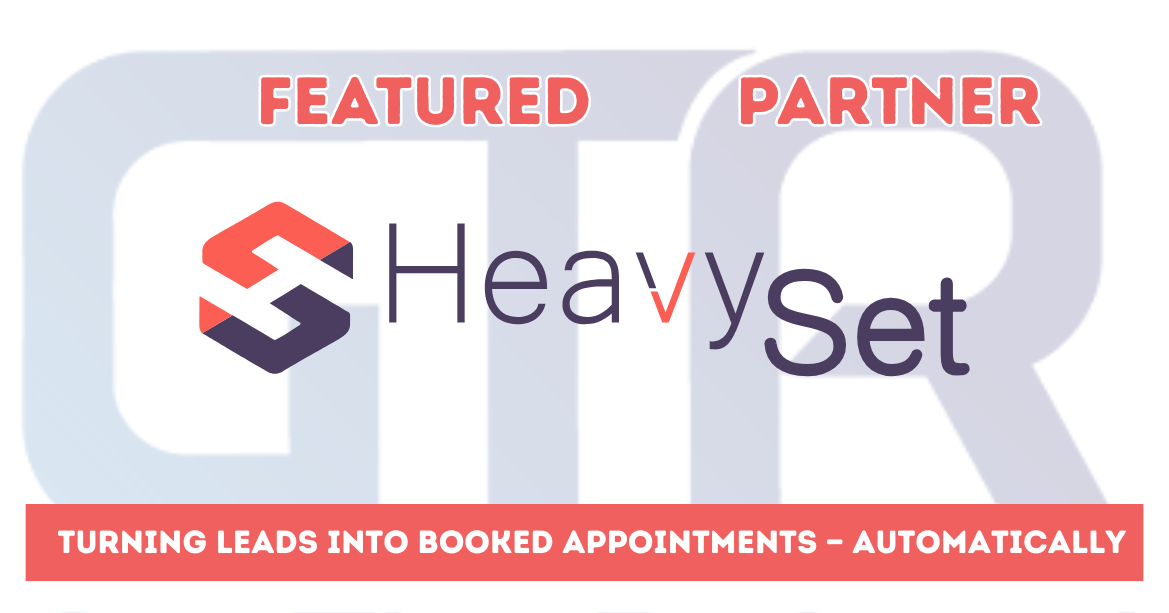GTR Named 2026 Power 100 Preferred Partner
GTR Named 2026 Power 100 Preferred Partner TL;DR
4 min read
Mikayla Martinsen
:
Updated on February 17, 2026


Everything you need to know about paying—and earning—referral rewards
Key Takeaways
|
In the home services world, word-of-mouth is more than a nice-to-have. It’s the holy grail.
So let’s get real: If your referral program isn’t pulling its weight, you’re leaving money on the table.
Enter referral fees—the strategic (and wildly effective) way to reward people for bringing new business your way. When implemented well, referral fees are one of the most cost-effective growth tools in your arsenal.
In this guide, we’ll break down what referral fees are, how they work, why they matter, and how to structure a program that drives serious results.
A referral fee is a reward—typically monetary—paid to someone who refers a new client or customer to your business. Think of it as a thank-you bonus for sending business your way.
Referral fees can take different forms:
💠Cash
💠Gift cards
💠Store credit
💠Discounts
💠Even experiences or swag
The key is that it’s something valuable enough to motivate action.
Here’s how a simple referral fee process works in a home services business:
1. Someone refers a potential customer — usually a satisfied client, friend, or even a subcontractor.
2. That referral converts — they schedule an estimate, sign a contract, or complete a qualifying action.
3. You pay the advocate — either automatically or after confirming the job was completed.
The best part? Everyone wins. The new customer gets a trusted recommendation. The referrer gets rewarded. And you get a warm lead with a higher close rate.
Let’s get into the good stuff. Here’s why more and more contractors, remodelers, and roofers are leaning into referral programs with real rewards:
Referral leads often cost a fraction of traditional ads—and they convert better, too.
Referrals come in pre-sold. They already trust you because someone they know vouched for you.
Paying referral fees keeps your best customers engaged and thinking about you long after the job is done.
Referred customers tend to stick around longer, buy more, and refer others. (Hello, growth loop.)
Want your referral program to actually deliver? Here’s what to do:
Are you trying to boost sales this quarter? Increase referrals from past clients? Expand into new neighborhoods? Clarity drives success.
Options include:
💠 Flat fee (e.g., $100 per referral)
💠 Tiered (e.g., earn more as you refer more)
💠 Percentage-based (e.g., 5% of project value)
Keep it simple, generous, and worth their effort.
Use email, your website, social media, and even jobsite signage. GTR clients: use your branded app to make it easy.
Referral tracking is non-negotiable. Use automation to keep it clean and error-free—because if you mess up payments, people stop referring.
Don’t sit on it. Timely payouts build trust and encourage repeat referrals.
Different strokes for different folks. Here are four popular formats:
✔️ Cash Payouts: A classic. “Refer a friend, get $100.”
✔️ Discounts or Store Credit: Great for recurring services like pest control or landscaping.
✔️ Tiered Rewards: Encourage volume. “Earn $25 for your first referral, $50 for your third, $100 for your fifth.”
✔️ Milestone Bonuses: Surprise-and-delight bonuses when someone hits referral milestones.
Your referral program should pull its weight. Here’s how to measure that:
⚫ Conversion Rate: What percentage of referred leads become customers?
⚫ Cost per Acquisition (CPA): How much are you paying per referral compared to ads?
⚫ Advocate & Referral Volume: Who’s sending leads—and how many?
⚫ Lifetime Value (LTV): Are referred customers more valuable over time?
Referral fees can work wonders—or flop. Watch out for these pitfalls:
🚫 Vague Terms
Fix: Be crystal clear about when and how fees are paid.
🚫 Poor Promotion
Fix: Remind customers regularly and make it easy to refer.
🚫 Overly Complex Rules
Fix: Simple = scalable. Make the program easy to explain in a single sentence.
🚫 Delayed Payouts
Fix: Pay quickly. Delays break trust.
🚫 Bad First Impressions
Fix: Make sure the new customer experience is solid. Every referral reflects on the person who sent it.
A referral fee is a reward you give to someone who sends a new customer your way. In home services, this usually means paying a satisfied customer, partner, or contact after a referred job is completed or closed. It is a way to say thank you while encouraging repeat referrals.
In most cases, yes. Referral fees are legal as long as they are clearly disclosed and comply with local regulations. Some industries or states may have specific rules, so it is always smart to review local guidelines. Many home service businesses use referral rewards safely by paying after the job is completed rather than upfront.
There is no one-size-fits-all number. Common options include a flat cash amount, a percentage of the job value, or a tiered reward system. The best referral fees are high enough to feel meaningful but still far less than what you would spend on paid ads or lead services.
The most effective programs pay referral fees only after a job is completed or payment is received. This protects your margins and ensures you are only rewarding real revenue. Paying quickly after qualification builds trust and encourages people to refer again.
GTR automates the entire referral fee process. It tracks who referred whom, monitors job status, and handles rewards without manual follow-ups. This prevents missed payouts, eliminates confusion, and helps turn referral fees into a consistent, scalable growth system.
In the end, referral fees aren’t just about handing out cash—they’re about creating a growth engine fueled by trust and relationships.
Whether you're just getting started or looking to improve an existing program, now’s the time to rethink how you reward the people who bring you business.
✨ Need help building or optimizing your referral program? GTR can help.
We specialize in referral systems that actually work—and we make it ridiculously easy to track, reward, and grow.

GTR Named 2026 Power 100 Preferred Partner TL;DR
Article Summary Spreadsheets are an inefficient and error-prone solution for tracking referrals as businesses grow. Referral apps like GTR...

We love spotlighting partners who help home services businesses capture more opportunities, fill calendars, and boost sales. For January, we’re...

3 min read
We’ve reached the grand finale of our series on why referrals are the best leads, and it’s time to end with a bang. Referrals aren’t just about...

You’re probably reluctant to read this because you already have an idea about referral programs: they don’t work. At least, they haven’t for you......